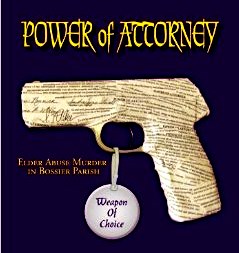
An attorney cannot transfer all of the funds to another bank account in the name of another party despite the attorney’s intention to protect the parent – McMullen v McMullen 2006 1656.
The parent was an active 86 year old father who while being frail and declining in health still enjoyed travelling and being independent. He was mentally competent for financial affairs.
His two children fearing that he would succumb to financial abuse, transferred his monies using their power of attorney to their spouses to hold in trust.
The parent sued and the transactions were set aside and the monies ordered be returned to the parent.
It is well established that the attorney acting under a power of attorney is bound to the duties enunciated on the face of the instrument granting the power. In this case, the power of attorney remains exercisable during periods of capacity and mental infirmity. A condition requires the attorneys to provide the donor with regular accountings at any time they assist him in his financial affairs.
It is also well established that the relationship between the attorney and the donor is a fiduciary one. This stems from the agent-principal relationship, as well as the indicators of a fiduciary relationship as described in Frame v. Smith, [1987] 2 S.C.R. 99, which include the unilateral exercise by the fiduciary of some discretion or power, which affects the beneficiary’s legal or personal interest, and where the beneficiary is particularly vulnerable. See British Columbia (Guardian and Trustee of) v. Egli (2004), 28 B.C.L.R. (4th) 375, 2004 BCSC 529, aff’d (2005) 48 B.C.L.R. (4th) 90, 2005 BCCA 627.
In Andreasen v. Daniels-Ferrie, 2001 BCSC 1503, Quijano J. described the requisite standard of care that was to be expected when utilizing a power of attorney at para. 27:
[I]t is well established that the attorney acting under a power of attorney does so in a fiduciary relationship with the donor and that, in addition to whatever duties may be enunciated on the face of the instrument, even where the attorney acts gratuitously he or she has a duty to account, to exercise reasonable care as would a typically prudent person managing his or her own affairs, and not act contrary to the interests of the donor.
[ In most cases involving allegations of a breach of duty regarding the use of a power of attorney, the issues stem from transactions where property was transferred from the donor to the attorney. Under s. 27 of the Property Law Act, any such transaction is not valid unless the power of attorney expressly authorizes it or the principal ratifies it. An unauthorized transaction will constitute a breach of fiduciary duty despite good intentions by the attorney: British Columbia (Guardian and Trustee of) v. Elgi, supra.
This case does not involve a transfer to the attorneys, but rather a transfer to the spouses of the attorneys. Mr. Roberts did not explicitly argue that such a transaction is equivalent to a transfer to the attorneys, but he did raise the applicability of s. 27 of the Property Law Act. He also submitted that the powers given in the power of attorney do not authorize the granting away of the principal’s property without consideration: Begley v. Imperial Bank of Canada [1935] S.C.R. 89, aff’d [1936] 2 All E.R. 367 (J.C.P.C.).




